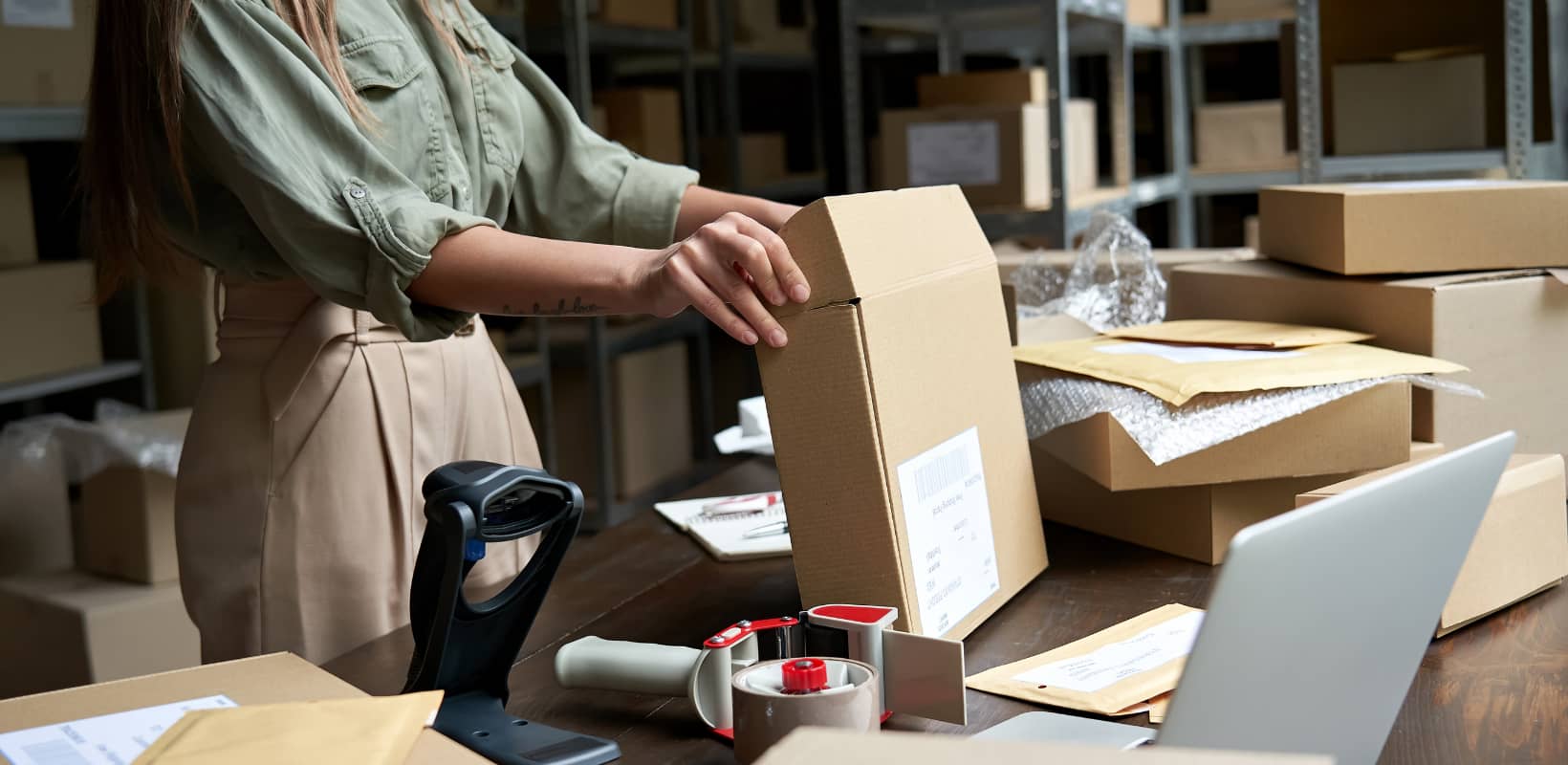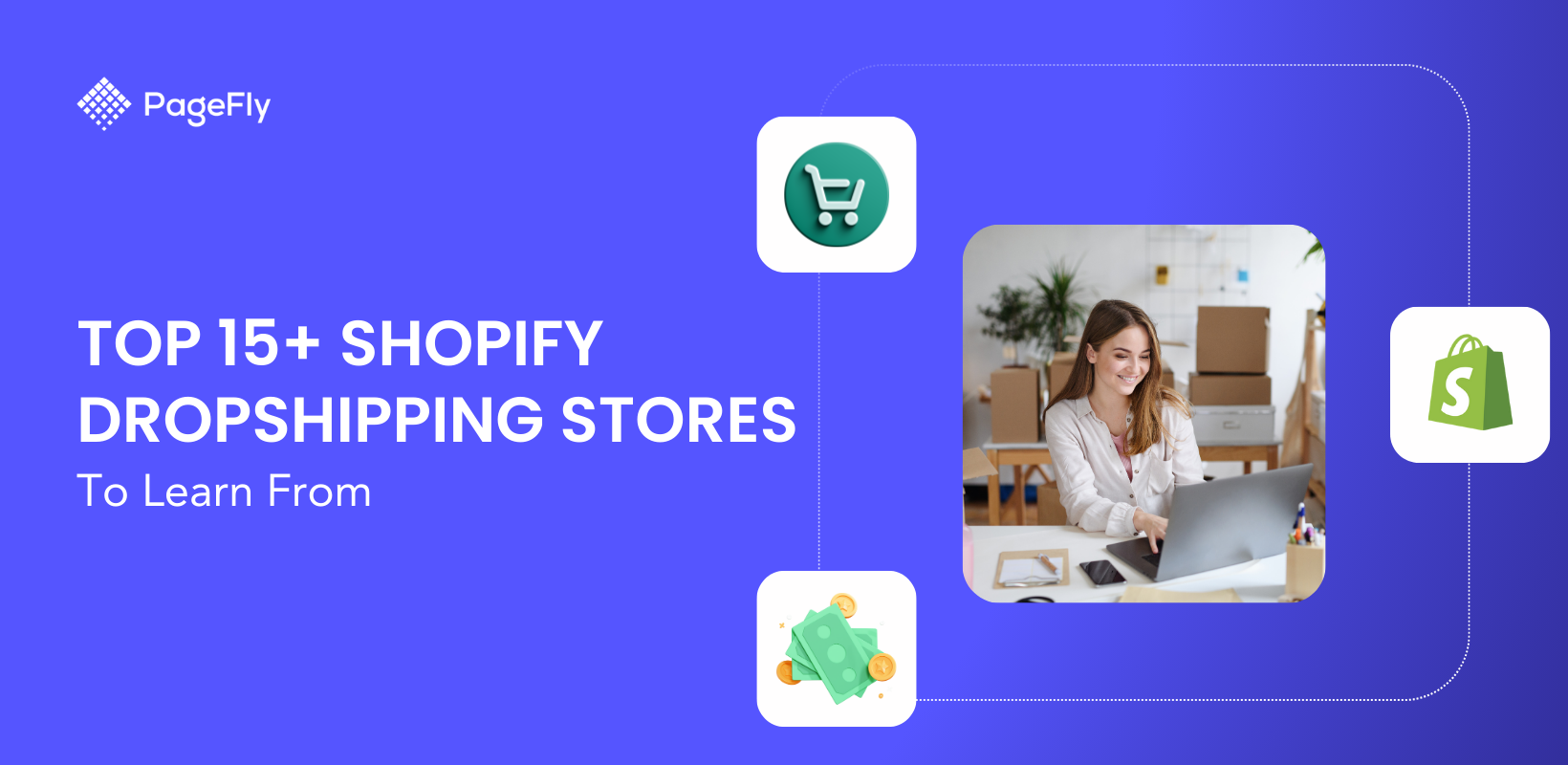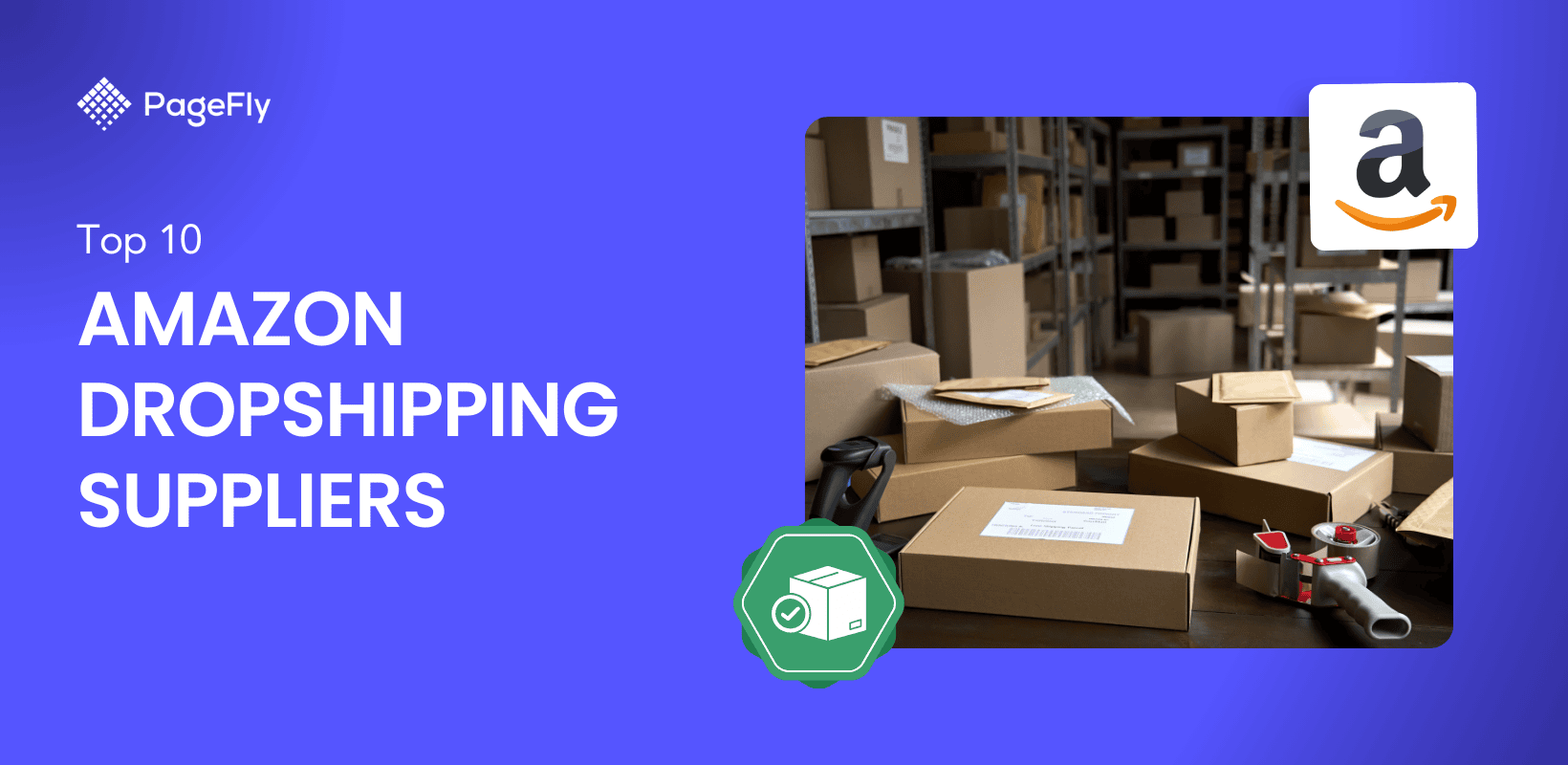So you’re planning to start a reverse dropshipping business but don’t know what it exactly is?
Reverse dropshipping might sound weird at first, but when you look at it up close, you will understand why reverse dropshipping is better than traditional dropshipping.
In this article, we will walk you through what reverse dropshipping is and how reverse dropshipping works, its pros and cons, and how to do it step by step.
I. What Is Reverse Dropshipping and How Does It Work
Before we explain what reverse dropshipping is, you should first understand what dropshipping is.
Dropshipping is an online business model where you list products from a wholesaler on your eCommerce website and sell them to your audience without the hassle of stocking them up in some warehouse.
In dropshipping, the majority of products are sourced from countries like China, Korea, and Indonesia and are sold to developed countries all over the world.
In reverse Dropshipping, the business model is similar to that of dropshipping, but with a twist: the audience and source are reversed. Here, the products are procured from developed countries like the USA, and the UK and are sold to Asian countries like China and Indonesia.
Now, you might think: Why would such a business model be profitable?
Here's why:
Let’s consider China as an example. Being an industrial giant, China is a hotspot for reverse dropshipping.
Although China is the biggest exporter of goods in the world, most of the Chinese population seek high-quality products but aren't able to find them in their own country.
China’s high-production level accounts for low-quality domestic products. As a result, consumers, especially rich consumers, try to find other ways to get high quality goods to their liking.
And that’s where a Reverse Dropshipping business can help.
In reverse dropshipping, high-quality products that are manufactured in the West are sold to wealthy people in Asian countries through a marketplace or your own eCommerce website.
So, in reverse dropshipping, top-notch dropshipping products are procured instead of low-quality, meaning higher margin and more profit than the usual dropshipping business.
How Does Reverse Dropshipping Business Model Work?
Now that you know what reverse dropshipping is, let’s see how it works. If you know how a dropshipping business operates, you’d have no trouble understanding reverse dropshipping.
The only thing you need to be aware of is that in this business type, you are dealing with expensive products made in western countries that would be sold to Asian consumers.
Here’s a quick overview of how a reverse dropshipping model works:
Collaborating With Dropshipping Supplier

First, you team up with dropshipping suppliers who are a major part of your business. These suppliers are the ones who manufacture and store the products, pack them and deliver them to the consumers.
Listing High Quality Products on Your Store

You list products on your eCommerce store’s product page and create categories for different products, set a price for them, and create an easy order flow.
Marketing

In a reverse dropshipping business, you’d be responsible for marketing your products and finding the right audience - so you do effective marketing and your business starts getting market traction. For example, you can use a retail marketing 2025 to help you strategize your plans more thoroughly.
Note: When you compare normal dropshipping with reverse, the marketing costs might be slightly higher in the latter.
II. Pros and Cons of Reverse Dropshipping
Now that you know what reverse dropshipping is and how it works, let's see if this business is suitable for you. Let’s see its advantages and disadvantages.
01. Pros of Reverse Dropshipping
High Margins
As the product you’re selling is of high-quality and in-demand, this business model when run successfully will yield big profits as compared with regular dropshipping businesses where low-quality products are sold in bulk (in most cases).
Inexpensive
Setting up and running reverse dropshipping is inexpensive as compared to other online businesses. The only major expense will be spent on marketing.
Allows You to A/B Test Strategies
As you don’t need to buy products in bulk, you can experiment with what type of product works for your business and yield the most profits.
Less Competition
As this is a relatively new business model, there are fewer reverse dropshipping sellers worldwide. This leaves you room for acquiring new markets and expanding the business.
Easy Return Policy
With reverse dropshipping, it’s easier for a customer to return an item as the dropshipper is the one who looks after the logistics, not you.
Diversity of Products
Reverse dropshipping will give you the freedom of diversifying the product range in your Shopify inventory management. This way, you get a chance of retargeting your audience and surviving market fluctuations.
02. Cons of Reverse Dropshipping
Difficult to Find An Audience

It’s tough to market your product and find an audience who will be interested in your product. The language barrier and differences in internet usage (search engines, social media) will be another concern.
Tough Management

Handling logistics in the Chinese market can be difficult as fewer Chinese businesses will be ready to collaborate.
Changes in Policies and Regulations
Due to geopolitical tension, there can be unpredictable regulation changes and import/export to countries like China can be hindered.
Note: Did you know that Facebook, Twitter, and Google are banned in China? The most popular search engine they use is Baidu. Therefore, you will have to optimize your eCommerce store for Baidu if your target audience is from China.
III. How to Start A Reverse Dropshipping Business?
Don't get demotivated by knowing the cons of this business model as every business model (whether online or traditional) has some drawbacks.
More challenges in reverse dropshipping mean fewer people will be trying this business; which means if you stick through, you can conquer the new market.
Although it may sound overwhelming, it's worth trying, considering the thick profits you can make.
Setting up a reverse dropshipping business is the same as setting up a dropshipping business. The only difference is that you're going to buy from the west and sell it to the east.
So if you've made up your mind, here's how you can start your own revere dropshipping business in 5 easy steps:
Step 1. Make A Practical Business Plan and Find Your Audience
The first step is to plan out
- What
- When and
- How
Meaning, that you need to sort out how you're going to execute your business so that it succeeds.

Deep market research and a well-planned strategy will be required when you're entering an unpredictable market.
A common mistake that many entrepreneurs make while making a business plan is that they over or underestimate many factors that influence the business.
So your goal is to make a workable business plan for your reverse dropshipping business.
Here's a helpful resource for you to write an effective business plan.
While you're working on your business plan, it's of utmost importance to know what market you're stepping in.
Knowing what products you're selling and who (consumers) would be interested in buying those products should be your next step.
Market research is the priority when figuring out which niche to choose for business.
Step 2. Select Suppliers
Once you've decided on the niche of your reverse dropshipping business, you need to look for a way to source your products, meaning you have to look for a reliable supplier.

To start, find multiple distributors that sell the same product and get an estimation of the money you would be spending when bulk ordering.
Remember, unlike Dropshipping business, here, you'll have to find suppliers that manufacture goods in the UK, USA, and Canada.
Depending upon the market you're targeting, you can choose a supplier like Spocket, US Direct, Easyship, or find another supplier that suits your goal.
Step 3. Set Up Your Store
Now that you know your audience, market, and supplier; the next step is to build your online store.

Many Asian countries don’t use Amazon or eBay, so it’s worth researching the platform that you’re going to use for building your store - Shopify could be a great host for your store.
An online store will show all your products in an inviting way that'll tell your potential customers what you have to offer.
Building a website may be tricky if you're new to it. Managing the team of UI/UX Designers and website Developers might overwhelm you.
When you're starting out, you can rely on an easy way to build your eCommerce store.
Here's what you'll need:
- Domain name for your website (e.g www.mywebsite.com)
- Hosting space for your website
- Content Management System (WordPress, Wix, Shopify, or other)
- Payment gateway integration
- Plugins to make your store look attractive and track important metrics
If you're unsure of how to do this, you can hire a freelancer who can develop an eCommerce store for you.
Step 4. Translate Your Pages
Once you start working on your website, you'd want to consider translating the page to the local language of your target audience.
Most of your potential consumers won't be well versed in English, so you have to translate all the content to the local language.
Here, relying on Google Translate or a similar tool to translate your content will be a poor choice as these tools are not reliable, and on many occasions, they wrongly translate the sentences.
Another problem with these tools is that the translated content will neither be in flow nor have a personalized touch.
If you’re planning to build a Shopify store for reverse dropshipping, using Shopify markets to convert your store into local language might be your best bet.
Step 5. Marketing and Branding
The most essential step in any business is the marketing and branding of your product.
You've learned that one of the most difficult parts of reverse dropshipping is finding the right audience, so effective marketing will be the key to a successful business.
Learning what platform is widely used by your targeted audience will let you decide your marketing approach.
Once you learn what platform your potential customers use, you can run marketing campaigns.
With the help of audience analytics, you can plan the marketing strategy and adjust the goals over time.
Design Your Own Shopify Store With No Limit
Fully Customizable. 100+ Templates and 50+ elements
Completely Free/ No Trial. Optimized for Fast Speed.
IV. Should You Do Reverse Dropshipping?
I don’t want to scare you, but about 90% of dropshipping businesses fail in the first month of business - leave the “reverse” dropshipping alone!
The answer to the question totally depends upon whether you want to take the risk of starting a business that is relatively new.
Here are the reasons why you might consider opening a reverse dropshipping store:
- Start an online business with a low investment
- Achieve high profits
- A business that is unique
- Run a business that has low competition
- Willing to take risks
V. Conclusion
Reverse dropshipping can be categorized as a dropshipping field wherein the roles in dropshipping business are reversed.
This business model has a high marginal profit, reliable suppliers, and products sold are of top-notch quality. The language barrier and cracking a deal with the business in Asian countries for reverse dropshipping can be a little difficult.
As the business is easy to operate and requires less investment, it comes with the drawback of having difficulty in finding the right audience for your products.
Although it’s a relatively new business model, this is the perfect time to explore this business if you’re an adventurous entrepreneur - so take your chances now!











